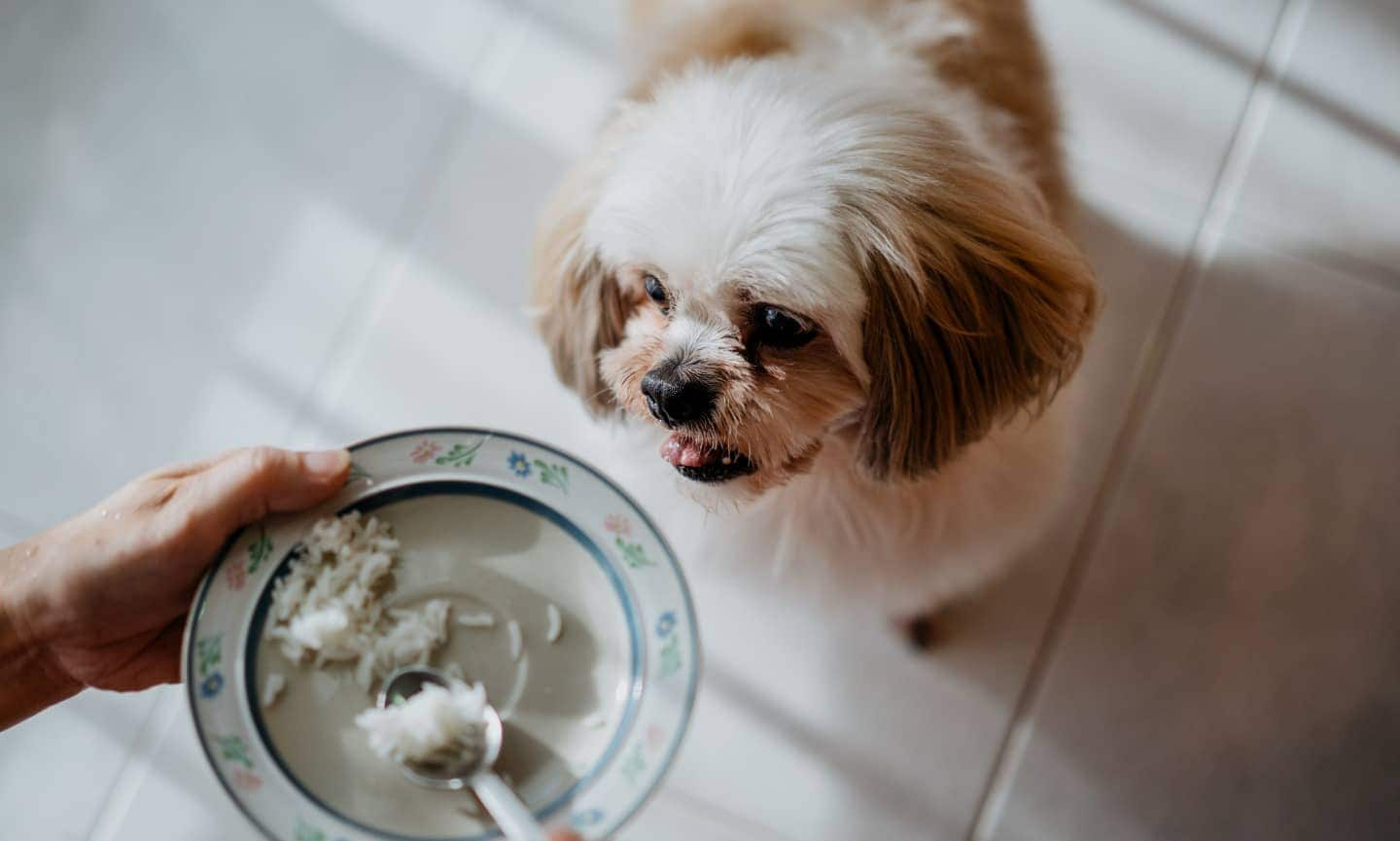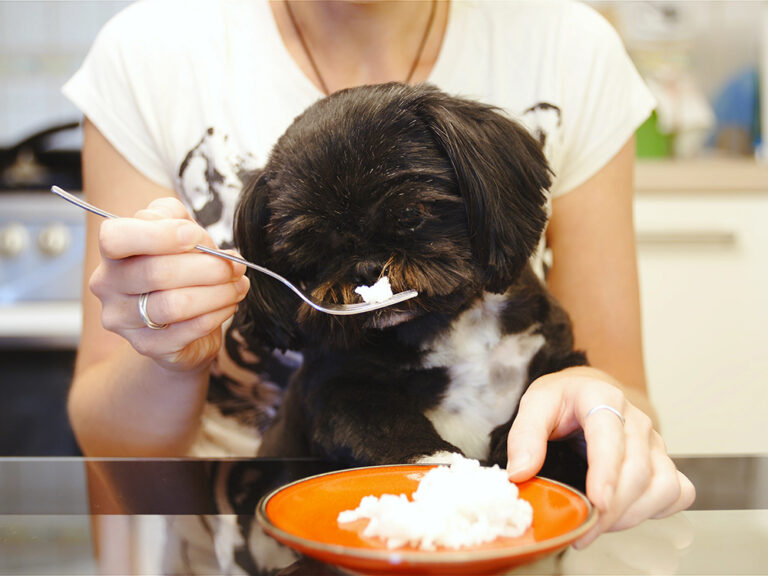For a dog with an upset stomach, you can give them a bland diet such as boiled chicken and rice. This easy-to-digest meal can help soothe their stomach and provide the necessary nutrients.
Additionally, you can consider feeding them bone broth, which is nutritious and beneficial for dogs recovering from gastrointestinal issues. It’s essential to monitor their symptoms and consult with a veterinarian if the stomach issues persist.

Credit: www.petco.com
Home Remedies For Dogs’ Upset Stomach
Dealing with your dog’s upset stomach can be distressing, but there are several home remedies that can help relieve their discomfort. By addressing common reasons for upset stomach, monitoring symptoms, and making dietary adjustments, you can help your furry friend feel better in no time. Let’s explore these home remedies further:
Common Reasons For Upset Stomach
There are several factors that can contribute to a dog’s upset stomach, including:
- Consuming inappropriate food
- Eating too quickly
- Food allergies or sensitivities
- Ingesting something indigestible
- Bacterial or viral infections
Symptoms Of Upset Stomach
Identifying the symptoms of an upset stomach is crucial in providing the appropriate care. Look out for the following signs:
- Vomiting
- Diarrhea
- Loss of appetite
- Abdominal pain or discomfort
- Excessive flatulence
Steps To Take If Only Symptom Is Diarrhea
If your dog’s only symptom is diarrhea, there are a few steps you can take to alleviate their discomfort:
- Use slippery elm bark powder
Use 1/8 teaspoon of slippery elm bark powder per 10 pounds of body weight, mixed with water or broth to form a paste. Administer this paste to your dog every 4-6 hours. - Put your dog on a fast
A short fasting period of 12-24 hours can help rest your dog’s digestive system and ease diarrhea symptoms. - Keep your dog hydrated
Offer small amounts of water frequently to keep your dog hydrated during the fasting period.
Transitioning To A Bland Diet
After the fasting period, you can start transitioning your dog to a bland diet. Bland foods are gentle on the stomach and can help regulate digestion. A common bland diet consists of boiled chicken and rice.
Monitoring Symptoms
As you transition your dog to a bland diet, closely monitor their symptoms. If the diarrhea persists or worsens, it’s advisable to seek veterinary care.
Transitioning Back To Regular Diet
Once your dog’s stomach has settled and their symptoms have improved, you can gradually reintroduce their regular diet. Monitor their response and make adjustments if needed.
Adding Stomach-friendly Ingredients To Regular Diet
To promote a healthy digestive system, consider adding stomach-friendly ingredients to your dog’s regular diet. These can include probiotics, which support gut health, and foods rich in fiber, such as pumpkin or cooked sweet potato.
By following these home remedies, you can provide relief for your dog’s upset stomach and help them get back to their happy, healthy selves.

Credit: be.chewy.com
Medications And Foods To Give A Dog With An Upset Stomach
When your dog has an upset stomach, consider giving them a bland diet of boiled chicken and rice, along with bone broth for added nutrition. You can also try small amounts of ginger, ice chips, or bananas to soothe their stomach.
It’s important to consult your vet before giving any medications to your dog.
Easier To Digest Ingredients
When your dog is experiencing an upset stomach, it’s important to make mealtime easier on their digestive system. One way to do this is by opting for easier to digest ingredients in their food. Choose lean meats such as boiled chicken or turkey, as they are gentle on the stomach and provide necessary protein. Additionally, white rice is a good option as it is bland and easily digestible. Avoid greasy or fatty foods, as these can exacerbate your dog’s symptoms.Meal Size Reduction
Another effective approach to managing an upset stomach in dogs is to reduce meal sizes. Instead of feeding your dog one or two large meals, try splitting their daily food allowance into several smaller meals throughout the day. This helps to ease the workload on the digestive system and prevents overloading the stomach. Additionally, smaller meals are easier to digest, allowing the stomach to fully process food without causing discomfort.Allowing Rest Time
Rest is crucial for a dog with an upset stomach. Just like humans, dogs need time to recover and heal. During this time, make sure to provide a quiet and comfortable space for your dog to relax. Avoid strenuous activities or excessive exercise that could further upset their stomach. Giving your furry friend plenty of rest allows their body to focus on healing and can help alleviate symptoms more quickly.Building A Strong ‘leave It’ Command
Training your dog to have a strong “leave it” command can be incredibly helpful when they have an upset stomach. This command can prevent them from ingesting anything that could worsen their symptoms, such as spoiled food or inappropriate objects. By training your dog to immediately drop or walk away from potentially harmful items, you can minimize the risk of further digestive issues. This command is not only useful during times of upset stomach but also in preventing potential future incidents.When To Contact A Vet
While home remedies can be effective for minor cases of upset stomach, it’s important to know when to contact a vet. If your dog’s symptoms worsen or persist for more than 24 hours, it’s time to seek professional help. Additionally, if your dog shows signs of severe pain, dehydration, or vomiting blood, immediate veterinary attention is necessary. Your vet will be able to provide further guidance on the best course of action and potentially recommend specific medications to help your dog recover.Recommended Medications For Upset Stomach
In some cases, veterinarians may prescribe specific medications to alleviate symptoms of an upset stomach in dogs. These medications are typically targeted towards reducing inflammation, alleviating pain, or addressing underlying issues causing the upset stomach. Commonly prescribed medications include: – Ranitidine (Zantac): Used to reduce the production of stomach acid and relieve acid reflux. – Famotidine (Pepcid): Another medication that decreases stomach acid production and treats ulcers or gastritis. – Bismuth subsalicylate (Pepto-Bismol): Recommended for soothing stomach discomfort and reducing inflammation. – Probiotics: These help restore the balance of healthy gut bacteria, promoting overall digestive health. Always consult with your veterinarian before administering any medication to your dog, as they can provide specific dosages and guidance based on your dog’s individual needs.Safe Over-the-counter Medications For Dogs
While it’s important to consult with your vet before giving your dog any over-the-counter medications, there are some that are generally considered safe for dogs. These include: – Pure canned pumpkin: It can help soothe the stomach and provide relief from diarrhea. – Psyllium husk: This fiber supplement helps regulate bowel movements and treat constipation. – Ginger: Known for its anti-inflammatory properties, ginger can help alleviate nausea and digestive discomfort in dogs. Always follow the recommended dosage instructions and monitor your dog’s response to these medications. If their symptoms worsen or persist, contact your veterinarian for further guidance.Specific Foods To Try Feeding Dogs With Upset Stomach
When it comes to choosing the right foods for a dog with an upset stomach, there are some options that may provide relief and promote healing. These include: – Boiled chicken: Easy to digest and gentle on the stomach, boiled chicken is a popular choice for upset dogs. – White rice: Bland and easily digestible, white rice can help soothe the digestive system. – Canned pumpkin: Rich in fiber and low in fat, canned pumpkin can help regulate digestion and firm up loose stools. – Bone broth: Nutrient-rich and gentle on the stomach, bone broth provides hydration and can aid in digestion. Remember to introduce these foods gradually and monitor your dog’s response. If their symptoms worsen or do not improve, consult with your vet for further advice.
Credit: www.petco.com
Frequently Asked Questions Of What Can You Give A Dog With An Upset Stomach
What’s The Best Thing To Give A Dog When They Have An Upset Stomach?
The best thing to give a dog with an upset stomach is a bland diet of cooked chicken and rice. This is easy for dogs to digest and helps soothe their stomachs. Avoid giving them any spicy or fatty foods.
If the symptoms persist, consult a veterinarian.
Can I Give My Dog Pepto Bismol For An Upset Stomach?
No, you should not give Pepto Bismol to your dog for an upset stomach. It’s best to stick to a bland diet of boiled chicken and rice or try foods like white rice, boiled chicken, and bone broth. If symptoms persist, consult your veterinarian for appropriate medication.
What Can Dogs Eat Or Drink For Upset Stomach?
For an upset stomach, dogs can eat a bland diet of boiled chicken and white rice. Bone broth is also good for their recovery. Avoid giving medication without consulting a vet.
What Medicine Can You Give A Dog For An Upset Stomach?
Famotidine (Pepcid AC®) and cimetidine (Tagamet®) can help dogs with upset stomachs by reducing stomach acid. Use them occasionally for dietary indiscretions, but consult a veterinarian if the issues continue. Avoid OTC medications for dogs without professional advice.
Conclusion
To alleviate your dog’s upset stomach, there are several options you can try. Consider feeding them a bland diet consisting of boneless, skinless chicken breasts and cooked white rice. You can also offer them boiled chicken, bone broth, or small portions of pumpkin or ginger.
Additionally, make sure your canine friend stays hydrated throughout the process. Remember, if your dog’s symptoms persist or worsen, it’s best to consult with your veterinarian for further guidance.



